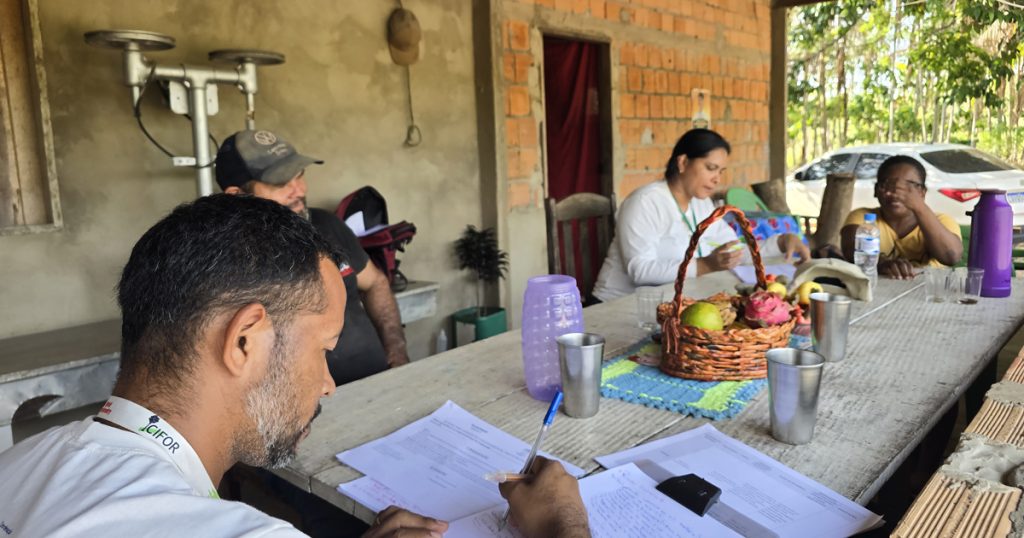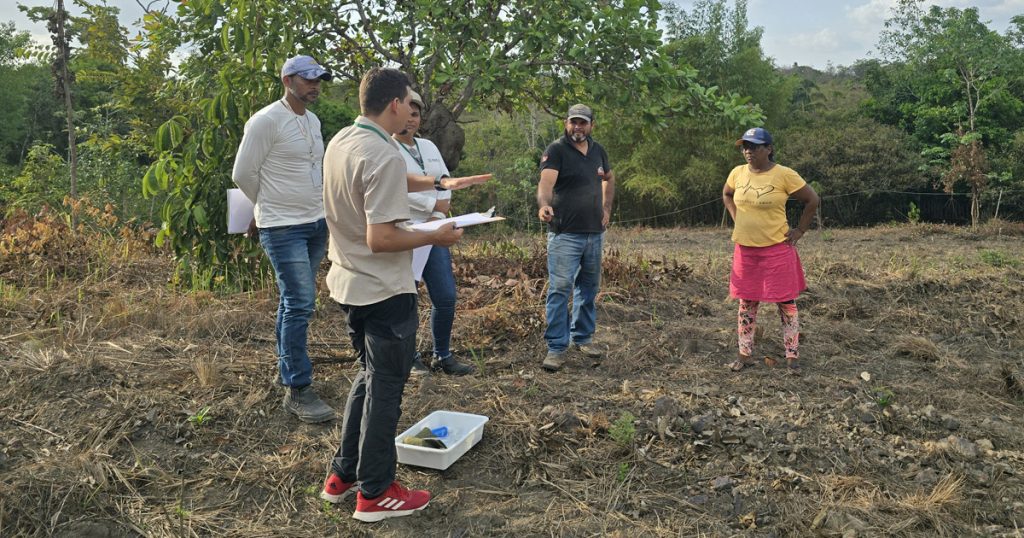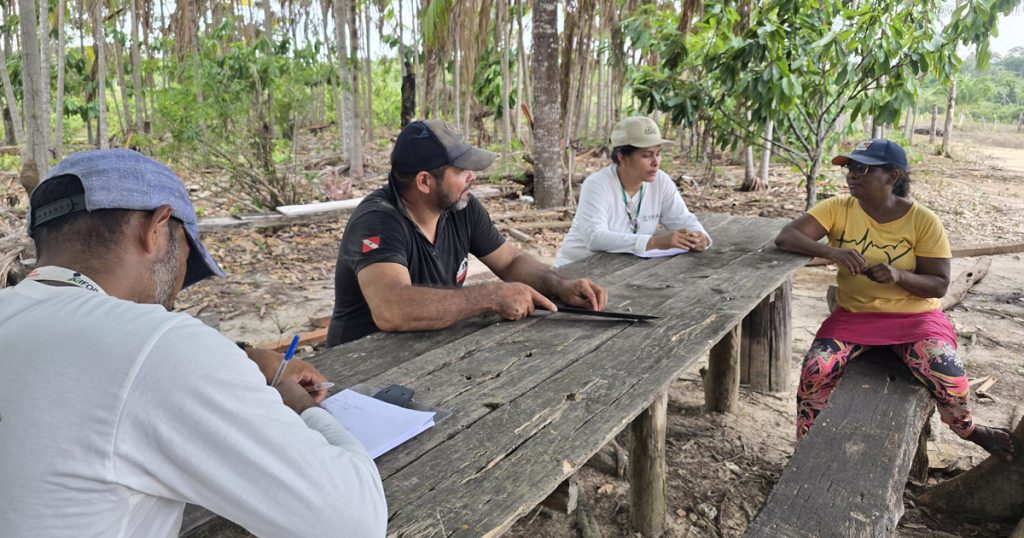
By Vitória Alves
CIFOR-ICRAF has developed a methodology to evaluate and monitor agroforestry systems (SAFs) across different contexts, offering an integrated perspective on rural properties. Known as PLANTSAFS: Planning and evaluation for decision-making in agroforestry systems, this qualitative research tool enables an in-depth understanding of farming families’ contexts to tailor solutions that align with their needs, preferences and aspirations.
From 1 to 4 October, the CIFOR-ICRAF team in Brazil met in Tomé-Açu, Pará, for a training session on implementing the methodology and applying its revised questionnaires. The updated questions reflect the realities of northeastern Pará and were informed by evaluations conducted by CIFOR-ICRAF. The activity is part of the ARCA program – Regenerative Agriculture for the Conservation of the Amazon.

Among ARCA’s key objectives is the establishment of a Network of Demonstration Units for Nature-based Solutions. These Demonstration Units (DUs) serve as practical examples of implementing Nature-based Solutions, such as agroforestry systems, ecological restoration and the sustainable management of socio- biodiversity products.
These processes involve collaborative dialogue between farming families willing to lead a DU on their properties and the technical experts from CIFOR-ICRAF Brazil and ARCA’s partner organisations . These exchanges promote knowledge-sharing and the dissemination of practices in the territory through a co-learning format with the communities, integrating research, rural extension and innovation in a participatory and continuous way.


«PLANTSAFS allows us to understand the farmers’ context, to get to know their properties and the area where the DUs will be set up. We can also log the attributes of the soil, the vegetation and the profile of the families. By planning, evaluating and monitoring processes, we strengthen the relationship between technical teams and the community while enabling comparative analyses of different management approaches. This process highlights the socio-economic and biophysical impacts of our interventions,» explains Saulo Souza, coordinator of the CIFOR-ICRAF’s Research Program in Brazil.
Well-planned and managed agroforestry systems promote quality of life for farming families, as well as maintaining resources, reconciling production with conservation. Engaging farmers throughout the decision-making process and considering regional and local contexts is a challenge, but it ensures the success of SAFs.
Learn more about the ARCA program at: Regenerative Agriculture for the Conservation of the Amazon – ARCA (cifor-icraf.org).













